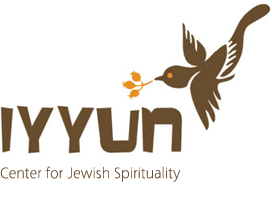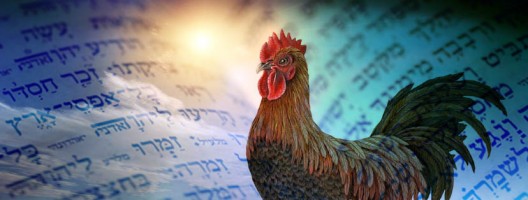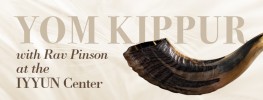As we begin morning prayers, we offer thanks to God, for providing us with all our physical and materialistic necessities—for giving strength to the weary, dressing the naked, and so forth. Being concerned with physicality, this segment of our prayers corresponds to the world as we know it, the lowest of the worlds—assiya—the World of Action. On a soul level, it corresponds to the part of the soul known as nefesh—the vitality of physicality or functional consciousness. This dimension of soul is expressed when we infuse our actions with spirit.
Each day, as we awaken from our slumber, we are reminded that creation is continuous. By sleeping and then awakening, we feel ourselves reborn continuously—on a more profound level, this is the very reason why we need sleep. We give voice to these sentiments when we thank God anew, every day, for the things that seem to the naked eye to be simply part of the order of nature. By offering our thanks, we articulate our realization that creation—and us included—is continuously being recreated. Cultivating a firm belief in a continuous, renewed creation demands from us to take notice and never relinquish our childish sense of wonder and awe at the mystery that animates creation.
The first of the morning blessings—”Blessed are You … Who gives the rooster understanding”—is an expression of gratitude for giving us the understanding to be able to praise Him. Although the word sechvi is translated as rooster, it can also refer to our own discerning quality—which allows us to differentiate between light and dark, knowledge and ignorance.
The rooster is the wake up call, an alarm telling us to wake up from our spiritual slumber. The first thing we do as we awake is we open our eyes, thus, we say “Blessed our You … Who opens the eyes of the blind.” Here we are also asking for spiritual sight to see within everything that is light, wisdom, interconnectedness—that is, to have expansive consciousness where everything makes sense but not necessarily according to human logic.
Then we continue with “Blessed are You …Who releases the bound.” In bed, we were curled as if bound, and now we can stretch and then straighten out-”Blessed are You … Who straightens the bent over.” Then we get dressed, and so we say, “Blessed are You …Who clothes the naked.”
On the spiritual level, when we can discern goodness within everything, we are then no longer bounded by our burdens, hardships, or apparent negative experiences. When we are not weighed down by depression, fear, selfishness, and all other negativities, we can stand upright, with confidence, and not view ourselves and others as crooked. Coming from a healthy state within, we now can venture “outward,” and now the “garments” that we weave—our projections, thoughts, words and actions-will be brilliant and properly reflect our soul.
The next blessing, “Who gives strength to the weary,” is universally understood to refer to times of terrible oppression when Jews were severely persecuted. Today, it can mean having the strength to actually get out of bed. And also, it can refer to spiritual tiredness. When we are spiritually tired and cannot see goodness, God gives us strength to persevere even when we don’t see a way out.
“Who spreads the earth on the waters” reminds us of the firm ground on which we are standing and—”Who directs the steps of man”—walking on. Finally, “Who has provided my every need,” refers even to the shoes that we need for walking and to take care of all our other needs.
Here we are also speaking about faith, which the earth symbolizes. Even when we stumble on an emotional level, God spreads our faith so we can stand, and not only stand, but move forward and grow—although it’s dark, if we have faith, we can walk with God, who provides our “every need,” including protection through faith from our own inner doubts.
The next two blessings related to the garments of prayer—”Who girds Israel with might” refers to the gartle/belt that separates the upper body from the lower, suggesting that we have mastery over our base instincts and thus can create a real unity of body and soul, and “Who crowns Israel with glory” refers to the covering of the head, which symbolizes humility and surrender before God.
Next, we refer to our mission and purpose. There are three elements that constitute our reality: 1) our nature/biology; 2) our nurture/environment; and 3) our soul/spiritual mission. The blessings that end with “Who has not made me … a gentile, a slave, a woman” refer to each person’s individual gifts. It is important to keep in mind, when reciting these blessings, that the idea that we are special does not mean that others are not special. There cannot be any intent here to demean others—only to thank God for our unique gifts. First, we thank God for giving us a spiritual mission in this world as Jews. We thank God for our environment of freedom—that we were not born into slavery. And lastly, we thank God for our nature/biology. (When this prayer is traditionally said collectively by a minyan, a group of at least ten Jewish males, it is phrased, “Who has not made me a woman.” However, a woman would either omit the blessing altogether or say “Who has made me according to His will.”)







